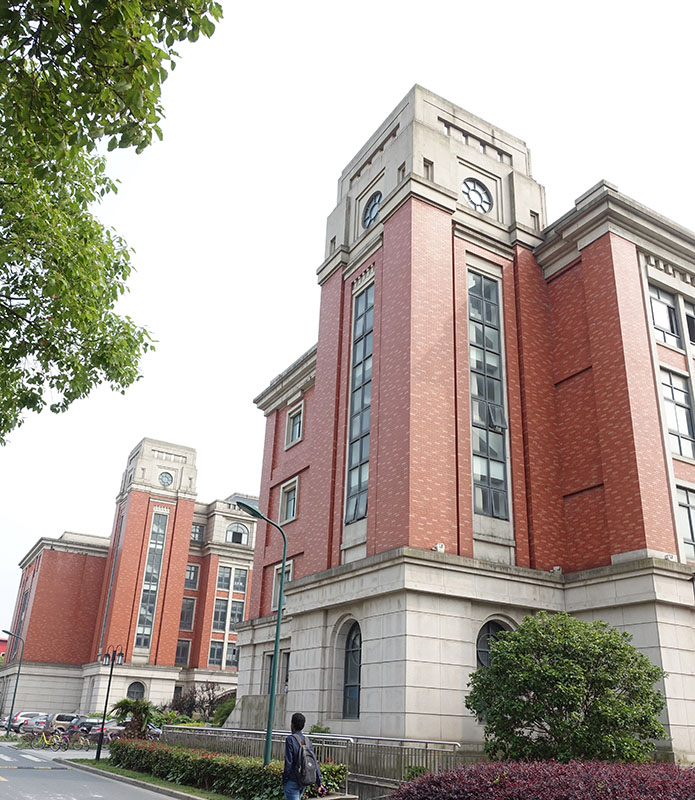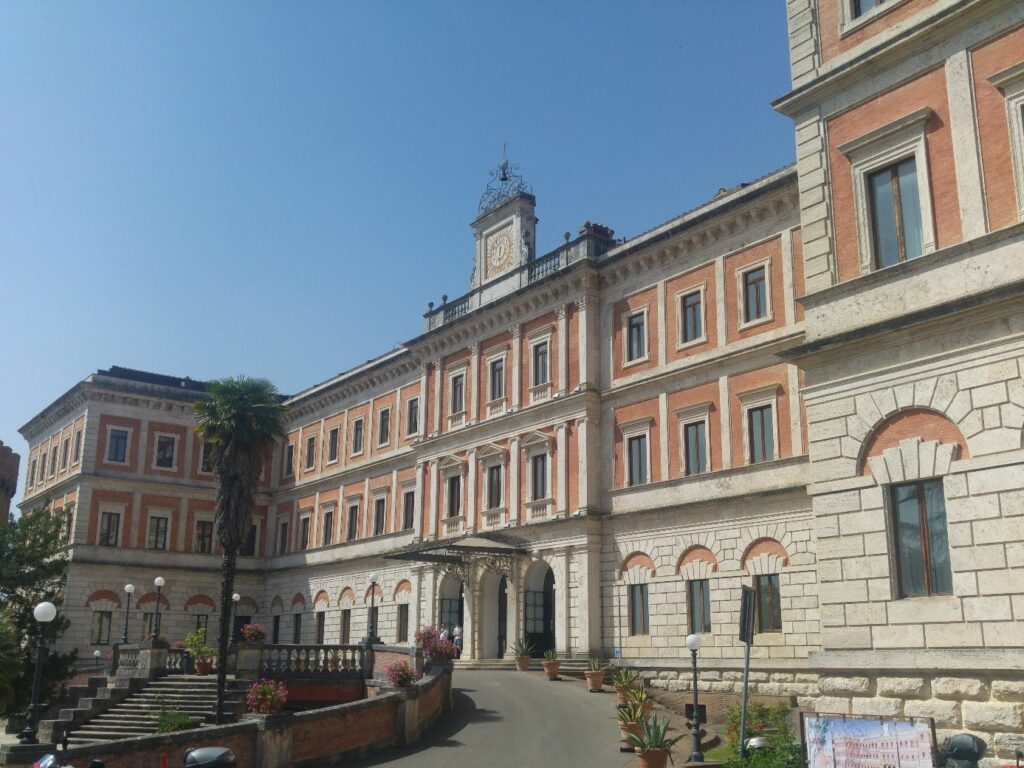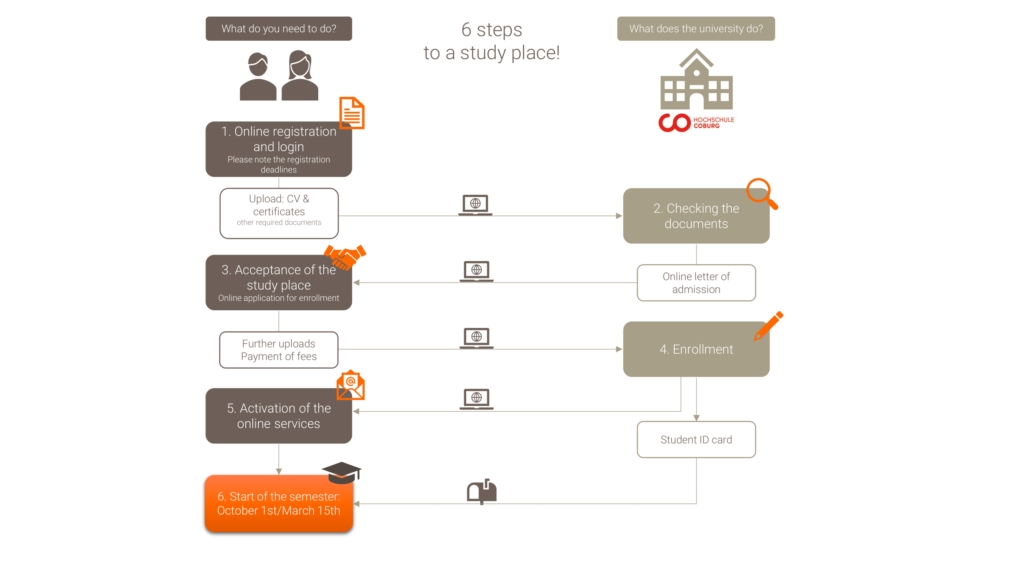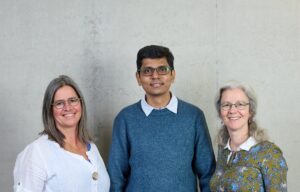Analytical Instruments, Measurement and Sensor Technology
In a Nutshell
Degree
Master of Engineering (M. Eng.)
Program form
Fulltime, further education
Program structure
4 semester, 120ECTS
Studienort
Language of instruction
English
Program start
winter semester (September 15th) in Coburg;
summer semester (February 24th) in Shanghai
Requirements
A bachelor's degree in engineering or natural sciences with above average result, proven proficiency in English, professional experience of one year
Accreditation
accredited by ASIIN
Tuition fees
3,900 EUR per semester, reduced 2,250 EUR (only for students from USST Shanghai)
Program director
Application
Deadline: June 30th – August 31st for German or EU students.(winter term)
Start your career
Interested in shaping your future with a study program in Germany? Then join our international master's program in Analytical Instruments, Measurement and Sensor Technology (AIMS). The core of the AIMS program is sensor technology, a key technology in nearly every field of engineering. This specialisation is only offered by Coburg University. Our program includes a semester abroad: You can choose between University of Siena (Italy) and University of Shanghai for Science and Technology (China). All our courses are taught in English. German language proficiency is not required. However, German language courses are integrated in the curriculum to give you a smart start.
Please get an insight view here:
Sie sehen gerade einen Platzhalterinhalt von YouTube. Um auf den eigentlichen Inhalt zuzugreifen, klicken Sie auf die Schaltfläche unten. Bitte beachten Sie, dass dabei Daten an Drittanbieter weitergegeben werden.
Mehr InformationenStructure of the Program
Our full time study program is two years (four semesters). The first two semesters are theoretical coursework at two universities: You start in winter semester in Coburg and go for summer semester to Siena or Shanghai. In the third semester of the program, you will do a three-month internship: International students complete their internships at companies in Germany, German students in China or Italy. In your fourth semester, you'll prepare your master's thesis either in a company, a research institute or a research laboratory. An overview of the modules and electives: AIMS structure of the program
Curriculum & Examination Regulations
We do not only give you the theoretical background in lectures and seminars but we also show you how to apply these methods and technologies within different practical projects and you can put hands on in our practical labs. We also want to get you in contact with innovative developments in technology and applications in industry. Therefore we visit international technical fairs like e.g. SPS fair in Nuremberg.
You will learn principles and applications in the fields of measurement devices and procedures such as sensor technology, computer-based measurement technology, IoT, or nanoscience. To get along in Germany language training and intercultural soft skills are integrated in the program. Laboratory exercises, projects and computer assisted lectures provide additional support for effective learning.
When you successfully completed the study program including the master's thesis at the end of the fourth semester, we will award the degree "Master of Engineering (M. Eng.)".
Download:
module guide
study regulations (german)
English courtesy translation of study regulation
Legal basis:
Matriculation statutes
Fee schedule
Language Courses
Students of this program are required to take foreign language courses as part of the curriculum in their first and second semester. Depending on the students' previous knowledge, various levels are offered.
Chinese language courses for German participants
- Fundamental course: first semester, 4 contact hours per week + individual learning (6 ECTS)
- Advanced course: second semester, 4 contact hours per week + individual learning (6 ECTS)
German language courses for international participants
- Fundamental course: first semester, 4 contact hours per week + individual learning (6 ECTS)
- Advanced course: second semester, 4 contact hours per week + individual learning (6 ECTS)
Moreover, courses in the Chinese or Italian language are offered at the Coburg University for all international students.
Admission Requirements
You need to have
- a bachelor's degree (or higher) in the field of engineering or natural sciences with good results.
- English proficiency proven by a relevant mark in one of the following tests: UNIcert® II, TOEFL 550, CBTOEFL 213, IELTS 6.0. Or you can prove equivalent knowledge e.g. by a bachelor entirely taught in the English language.
- Professional practical experience of at least one year (exceptions are possible in special cases, but students must fulfil this requirement before graduating from the master's program. In this case they will have to submit a written description of how they plan to meet this requirement).
Units in Coburg
- Computer Based Measurement Technology provides the students with the skill to analyze demanding tasks in the field of computer based measurement and test technology, to design concepts for their solutions and to implement them in a timely and cost efficient manner using contemporary software tools. Furthermore, the students learn the basics of computer-based data acquisition, networking, measured data evaluation and processing. The course covers important concepts of instrument interfaces, VISA (virtual instrument software architecture) and data recording using DAQ boards.
- Sensor technology describes the workings of passive and active sensors, oscillators, propagation paths as sensors and micro and nanoscale sensors. It also focuses on different sensor principles, their applications as well as limitations. The current trends in sensor technology and the ability to integrate different sensors into a measurement system are also covered in the course.
- Mathematical Data Analysis provides the mathematical basis to analyze measurement output. It focuses on detailed knowledge of mathematical approaches of data analysis of time series measurements. Furthermore, understanding of mathematical foundations of systems modelling is given.
- Electives, e.g.: Chemical Sensors, Methods of Instrumental Analysis, Academic Documentation and Reporting, Design of Experiments, Instrumentation for Nanoscience and Materials, Industrial Electronics – Reliability and Design for Safety of Sensing Chains
Units in Shanghai
- Photoelectric Detection explains the principles, characteristic properties, structures and applications of semiconductor optoelectronic devices for detection of optical radiation. Particular emphasize is put on the construction of different devices and their specific use in the fields of detection and fiber-optic communication.
- Nanometrology imparts basic knowledge of nanotechnology, e.g. the nanomaterials and molecule-based devices, carbon nanotubes and nanowires and applications with respect to measurement techniques in the nanometer range, e.g. scanning tunneling microscopy (STM) and atomic force microscopy (AFM).
- Digital Signal Processing equips students with tools that enable them to design and analyze most digital signal processing systems. The components of digital signal processing systems considered here are used to process signals which are discrete in time and in amplitude. Examples: Discrete Fourier transforms, digital filters and multirate systems.
- Electives; e.g.: Silicon Sensor, Automotive Electronics, Medical Imaging Technology, Design of Experiments, Interferometric Testing.
Possible Units in Siena
- Modern Communication Technologies for 5G and Beyond
- Industrial Reliability and Safety Engineering
- Sensors and Microsystems
- Mobile Communications and IoT
- Manufacturing Strategies and Operations
- Cybersecurity
- Digital Embedded Electronics for Smart Industry
- Microwave Engineering
Our Service and Fees
You will get a special service at our university since we have a lot of experience how to make you feel at home quickly. We offer a pickup service from the train station, we organize a room in the dormitories at our campus, you'll get help to deal with German authorities like Coburg registration office or health insurance. We help to open your bank account as well as finding places to buy food. Or you need an appointment for a doctor? You need to sign a German contract for internship? You need help to prepare applications? We are also here to help you with that.
Therefore our tuition fees are 3,900 EUR per semester plus students service fee of about 140 Euros at the moment. The service fee includes a semester ticket (all buses in Coburg and also trains e.g. to Bamberg). Exchange students from our partner university USST in Shanghai will be charged a reduced tuition fee of 2,250 EUR per semester plus service fee, because they also pay at USST.
Application
Kindly complete the online application, upload all required documents and send it to us online.
Required documents are:
- scanned copies of all of your diplomas
- scanned copy of transcripts of grades
- TOEFL/IELTS or UNIcert® (for English language) scores
- scanned copy of passport
Please note: During enrollment procedure you will have to present the originals.
We will inform you via email, if you are eligible for our program. If you are eligible, one of our professors will invite you for a telephone or zoom interview to see if we can understand each other on a professional level. The deadline for applications for winter semester is August 31st for German students and May 31st for foreign students, because the visa application process needs a lot of time.
The process at a glance
Partner University
University of Shanghai for Science and Technology

We offer our Master of Engineering program in cooperation with University of Shanghai for Science and Technology (USST), China. USST is a well-established and full-fledged multidisciplinary university committed to training competent professionals in the fields of Engineering, Management, Commerce, Arts, Sciences and Medicine.
College of Optical, Electronical and Computer Engineering
The responsible college for the Master in Engineering is College of Optical and Electric Information Engineering. It has six research institutes and one academician of the Chinese Academy of Engineering, six Ph.D. advisors, 40 professors and associate professors. It provides seven master's programs in the fields of Measuring Technology and Instrumentation, Precision Instrumentation, Optical Engineering, Testing Technology and Automation, Control Theory and Engineering, Mode Identifying Technology as well as Signal and Information Process.
Additional information about USST and College of Optical and Electric Information Engineering can be found on this website: www.usst.edu.cn
University of Siena

Additionally to the cooperation with USST we can offer from summer semester 2021 on a cooperation with University of Siena in Italy. Our students will be hosted in this beautiful city by our partner, the Department of Information Engineering and Mathematics. You can find more information about University of Siena here: https://en.unisi.it/university
Job Perspectives
Our alumni work in different countries and in various fields. Part of the graduates stay in Germany, others go back to their home countries and start to work in a local international company. Some qualified graduates join a PhD program after finishing AIMS. There is also a PhD centre at Coburg university, if you are looking for a research oriented career. If you are looking for a job in a German company: At the moment, there are alumni working in Bosch, Continental, Ford, Micro-Epsilon Messtechnik, Huawei, Wika, Hewlett Packard, VW, Audi, Roche, Philips, Hella Schaeffler, Evonik…
Support for International Students
Unlike at larger universities throughout the world, you will not need binoculars in order to see your professor at Coburg University of Applied Sciences and Arts. Here, we offer you a first-class education with personal service. When you are moving to study in a different country, there are many things to consider. No need to worry, though! We will guide you through the most important steps in organizing your time at Coburg University: Our support for international students
Frequently Asked Questions
In what language are the lectures taught? Is there a possibility to work part-time? How long does the admission process take? What is the cost of living in Coburg? Answers to questions like these you can find in our FAQ (frequently asked questions).
About the Program
What is the program about?
Our program Analytical Instruments, Measurement and Sensortechnology consists of four semesters including a practical internship of at least three month and a master thesis in a company. The objective of our program is to qualify you in methods and technologies in the field of instrumental analytics, measurement and sensor technology. Our Master of Engineering program is jointly offered in cooperation with University of Siena, Italy and University of Shanghai for Science and Technology, China.
In what language are the lectures taught?
All lectures at Coburg University and at the partner universities are held in English.
Is there a possibility to work part-time?
When you are studying a semester in Coburg, there might be a chance to work part-time, taking in account your individual situation and especially your German language abilities.
What kind of degree will the students obtain upon completion of the program?
Fulfilling the requirements of the program you will be awarded with master's degree Master of Engineering from Coburg University.
About Admission
What are the admission requirements?
To be considered for admission, a student must have at a minimum:
- Bachelor's degree in the field of Engineering or in Natural Sciences with at least good or equivalent final grade
- Proficiency in English (i.e. UNIcert® II, TOEFL 550, CBTOEFL 213, IELTS 6.0)
- At least one year of professional practical experience after graduation
- Successful participation in the interview process
Can I be admitted into the program without professional practical experience?
Yes, certain exceptions are possible for those applicants who have not yet completed one year of professional practice; however, they have to submit a written description of how they plan to fulfil this requirement before graduating from the master program.
What kind of criteria does the admission committee use to assess candidates?
Our admission committee checks especially for your academic achievements during your bachelor and seeks in particular very motivated students with practical professional experience as well as excellent language and personal skills.
What is the deadline for the application?
The deadline for German students is August 31st and for international students May 31st because of the visa process. Students have to complete the online application, upload all required documents in our application portal. Applications received after the deadline will not be considered.
What is the institution code of the University for sending TOEFL official score?
Our institutional code number for TOEFL is 7450.
How long does the admission process take?
After we receive the application, it will be checked by the admission commission. That might take 1-2 weeks. If you are eligible, one of our professors will hold an interview with you – mostly by telephone, but skype is also possible. You should have a final decision latest after four weeks.
Do you accept certificates/degrees written in languages other than English or German?
The university does not accept documents written in a language other than English, Spanish, Italian, French or German. You need to obtain a certified translation and thus, we recommend contacting the local German Consulate; otherwise, evaluation of the certificate/degree will not be possible.
About AIMS
How much is the Master in Engineering?
The tuition fee for one academic semester at Coburg University is 3,900 EUR for international students and 2,250 EUR for students from our partner university USST, because students from USST also pay at USST. You have to add a student service fee of about 140 Euros per semester which includes a semester ticket for using all buses in Coburg and also trains e.g. to Bamberg.
What is the cost of living in Coburg?
Apart from tuition fees, students should budget around 992 EUR per month for accommodation, living costs, health insurance, books and other miscellaneous expenses. International students are required to open a blocked account to prove that they have sufficient funds for their stay in Germany (992 EUR per month for one year: 11 904 EUR at the moment (01/2025)). But Coburg is a lot cheaper than Munich or other big cities in Germany. Students can manage to get along with less.
What is the cost of living in Shanghai?
In Siena as well as in Shanghai it depends a lot where you rent a room. In the dorms the prices are about 300 EUR for a double room. Private apartments are a lot more expensive. For your stay in Shanghai you have to calculate 400 to 500 EUR for private accommodation. In Siena it is about 350-500 EUR.
Are there any scholarship funds available for students?
Coburg University of Applied Sciences and Arts does not offer any scholarships to first year students. There are organizations in Germany which provide scholarships to outstanding students coming from abroad. Please visit the following site to obtain more information: www.daad.de – German Academic Exchange Service (DAAD)
I want to know more about AIMS
Are you interested in further information about our master program Analytical Instruments, Measurement and Sensor Technology? You can sent us a short message.



